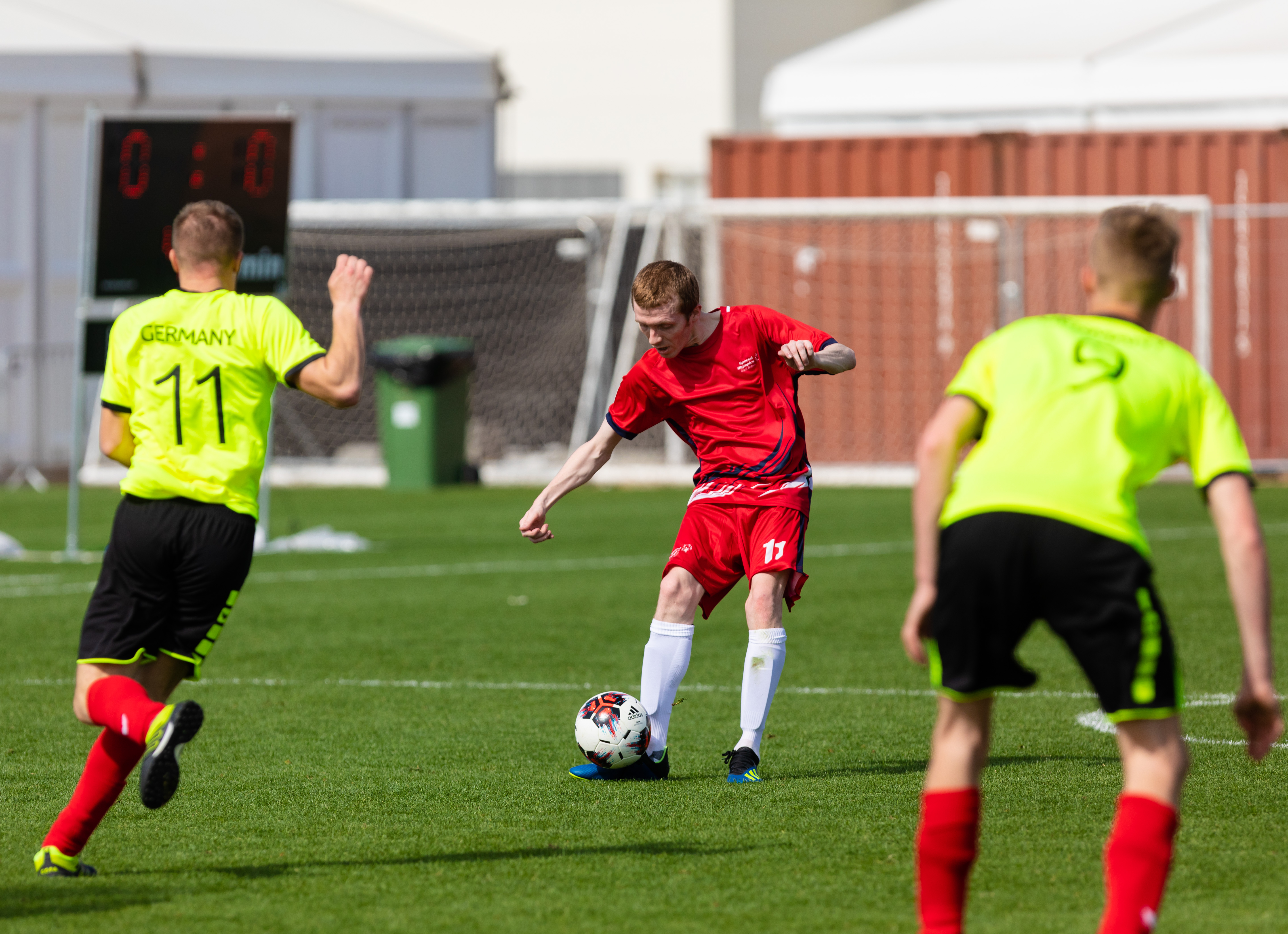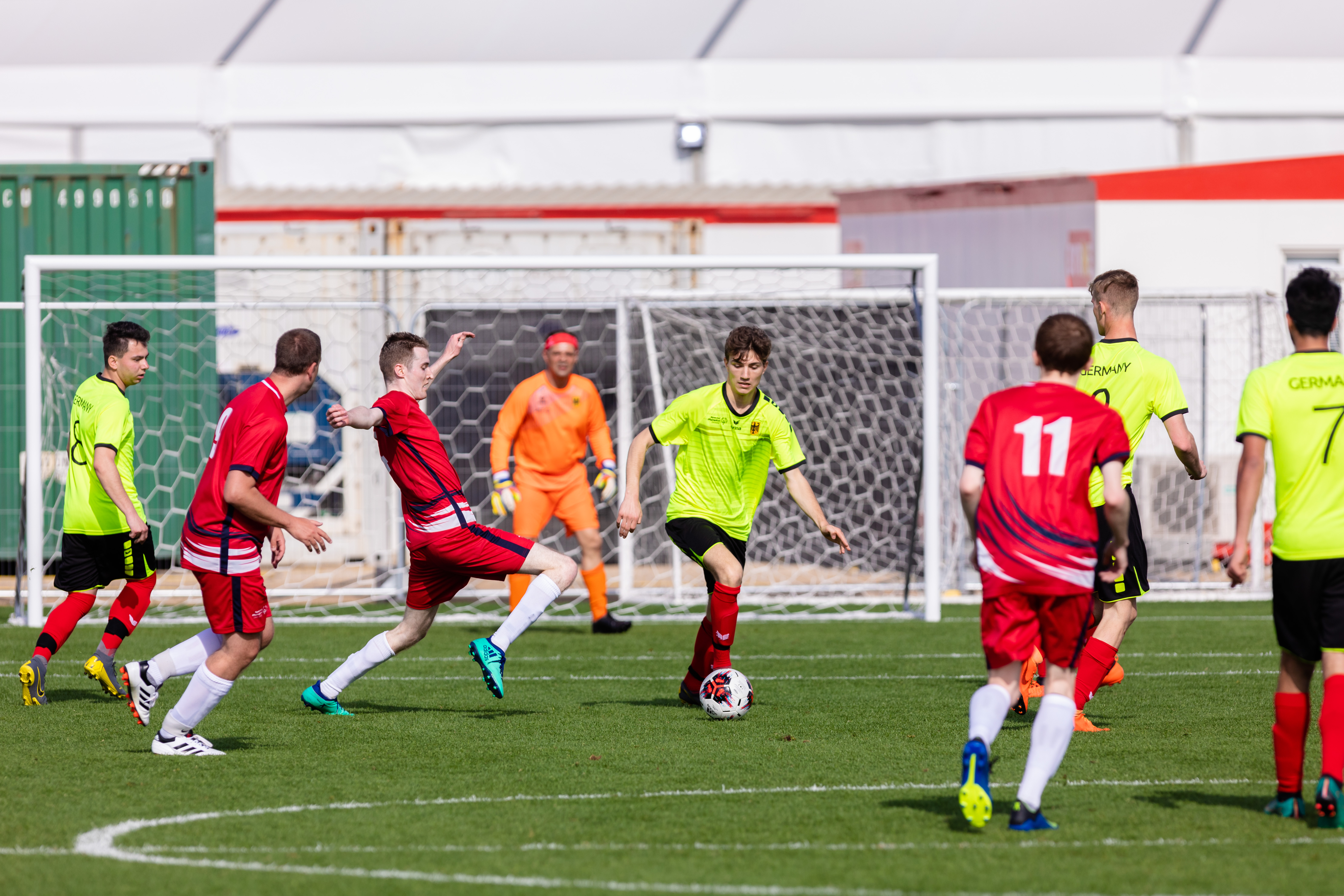For many in Great Britain a footballing rivalry with Germany means a great deal, but how does that manifest itself at the Special Olympics?
The Special Olympics GB seven-a-side team would find out at the World Games in Abu Dhabi – a celebration of athletes with intellectual disabilities – after they were drawn in a group with Australia, Switzerland and Germany.
As coach Liam Dwyer told the Press Association of the game: “Yeah, it has some significant history doesn’t it?”

Meanwhile for Reece Johnson, a midfielder, the chance to get involved in the rivalry in a competition fixture was welcome.
“Whenever England play Germany it’s always a big game,” he said. “So it felt good to have a good competitive game against them.”

“I knew the game was going to be tough because Germany are quite a good team, quite tough, so it was a physical game,” said Derek Taylor.
Indeed, a 0-0 result full of big tackles and a late flurry of chances confirmed how evenly matched these sides were in the seven-a-side arena.
“I’m very happy with the draw,” said goalkeeper Sean McCulloch. “This was the hardest game (for us) I would think at the moment.”
Game 2 of the group @SOGreatBritain 0-0 SO Germany. Two very organised teams that cancelled each other out. If we don’t lose our next game we will be playing for gold! Aussies are up next!
— Bobby Coltman (@CoachColtmanSO) March 16, 2019
But while plenty of the rivalry seems to translate to this World Games fixture, the Special Olympics movement gives it its own flavour, combining a will to win with respect and the forging of new relationships.
“We showed respect for them, handshakes at the end of the match,” said McCulloch, who swapped one of his World Games badges with an opponent at full time.
“It doesn’t matter what rivalry it is. As long as everybody’s together.”
Meanwhile, those sentiments were reflected in the crowd of friends, family and fans who were sat together watching from the stand.
“In the crowd the German supporters and the British supporters were all having a laugh together, chanting together and all sorts,” said Ward’s father Steve.
“There was no animosity. It was just a friendly atmosphere and it’s the same with the players. They all came off together – not as two teams, but together.”
And while building new friendships doesn’t necessarily take priority over victories, make no mistake: there is more than one way to leave this tournament a winner.
“I think we’ve got a very good chance of winning gold,” said Johnson. “But even if we don’t, we’ve made new friends and that’s what matters.”






